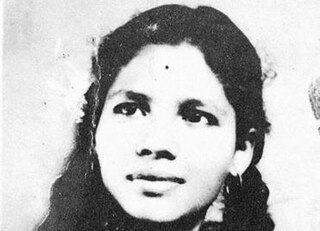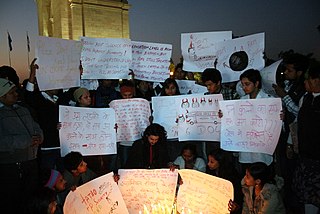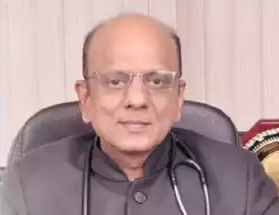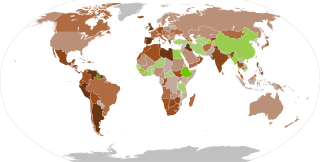The death penalty is a legal punishment in India, and is permissible for some crimes under the country's main substantive penal legislation, the Indian Penal Code, 1860, as well as other laws. Currently, there are around 403 prisoners on death row in India. The most recent executions in India took place in March 2020, when the four men convicted of the gangrape and murder of Jyoti Singh in Delhi in December 2012 were hanged in the Tihar Prison Complex in Delhi.

The Juvenile Justice Act, 2000 is the primary legal framework for juvenile justice in India. The act provides for a special approach towards the prevention and treatment of juvenile delinquency and provides a framework for the protection, treatment and rehabilitation of children in the purview of the juvenile justice system. This law, brought in compliance of the 1989 UN Convention on the Rights of the Child (UNCRC), repealed the earlier Juvenile Justice Act of 1986 after India signed and ratified the UNCRC in 1992. This act has been further amended in 2006 and 2010. In the wake of Delhi gang rape, the law suffered a nationwide criticism owing to its helplessness against crimes where juveniles get involved in heinous crimes like rape and murder. In 2015, responding to the public sentiment, both the houses of parliament in India further amended the bill that lowered the juvenile age to 16 and proposed adult-like treatment for juveniles accused of heinous crimes. The lower house, i.e. Lok Sabha passed the bill on 7 May 2015 and the upper house, i.e. Rajya Sabha on 22 December 2015. The bill was approved by President Pranab Mukherjee's assent on 31 December 2015.

Cadila Healthcare Limited is an Indian multinational pharmaceutical company headquartered in Ahmedabad, Gujarat, India primarily engaged in the manufacture of generic drugs. It ranked 100th in the Fortune India 500 list in 2020.
The Aga Khan Health Services is an agency of the Aga Khan Development Network (AKDN) that supports activities in the health field, and manages more than 200 health facilities, including a network of Aga Khan Hospitals.
Corrective rape, also called curative or homophobic rape, is a hate crime in which one or more people are raped because of their perceived sexual orientation or gender identity. The common intended consequence of the rape, as seen by the perpetrator, is to turn the person heterosexual or to enforce conformity with gender stereotypes.

Aruna Ramchandra Shanbaug, was an Indian nurse who was at the centre of attention in a court case on euthanasia after spending nearly 42 years in a vegetative state as a result of sexual assault.

Nithyananda is an Indian Hindu guru and godman. He is the founder of the trust Nithyananda Dhyanapeetam, which has temples, gurukulas, and ashrams in many countries.
Soumya murder case is a criminal case regarding the rape and murder of Soumya, a 23-year-old woman from Manjakkad near Shornur, while she was travelling in a passenger train from Ernakulam to Shornur on 1 February 2011.

The 2012 Delhi gang rape and murder case involved a rape and fatal assault that occurred on 16 December 2012 in Munirka, a neighbourhood in South Delhi. The incident took place when Jyoti Singh, a 23-year-old female physiotherapy intern, was beaten, gang-raped, and tortured in a private bus in which she was travelling with her male friend. There were six others in the bus, including the driver, all of whom raped the woman and beat her friend. Eleven days after the assault she was transferred to a hospital in Singapore for emergency treatment but died two days later. The incident generated widespread national and international coverage and was widely condemned, both in India and abroad. Subsequently, public protests against the state and central governments for failing to provide adequate security for women took place in New Delhi, where thousands of protesters clashed with security forces. Similar protests took place in major cities throughout the country. Since Indian law does not allow the press to publish a rape victim's name, the victim was widely known as Nirbhaya, meaning "fearless", and her struggle and death became a symbol of women's resistance to rape around the world.
Mythili Sivaraman was an Indian women's rights and trade union activist. She was a co-founder of All India Democratic Women's Association and leader in the Communist Party of India (Marxist). Through her writings and activism she brought attention to the Keezhvenmani massacre of 1968 and the Vachati mass rape cases of 1992. She led efforts to drive women's empowerment, particularly of women from the disadvantaged communities, and trade union and labour activism. She was a contributor to Economic and Political Weekly, and wrote for publications including Mainstream and the Radical Review.

Krishan Kumar Aggarwal was an Indian physician and senior cardiologist who was President of the Confederation of Medical Association of Asia and Oceania (CMAAO), President of the Heart Care Foundation of India and the Past National President of Indian Medical Association. In 2010, the Government of India honored him with the Padma Shri, India's fourth-highest civilian award, for his contributions to the field of medicine.

Suresh Kumar Koushal and another v. NAZ Foundation and others is a 2013 case in which a 2 judge Supreme Court bench consisting of G. S. Singhvi and S. J. Mukhopadhaya overturned the Delhi High Court case Naz Foundation v. Govt. of NCT of Delhi and reinstated Section 377 of the Indian Penal Code. The Supreme Court of India decided to revisit this judgement after several curative petitions were filed against it, in 2017. Thereby in 2018, Navtej Singh Johar v. Union of India, a 5 judge bench of the Supreme Court overturned this judgement, decriminalizing homosexuality. But portions of Section 377 relating to sex with minors, non-consensual sexual acts such as rape, and bestiality remain in force.

Navtej Singh Johar &Ors. v. Union of India thr. Secretary Ministry of Law and Justice is a landmark decision of the Supreme Court of India in 2018 that decriminalised all consensual sex among adults, including homosexual sex.

The COVID-19 pandemic in India is a part of the worldwide pandemic of coronavirus disease 2019 caused by severe acute respiratory syndrome coronavirus 2. The first case of COVID-19 in India, which originated from China, was reported on 30 January 2020. Currently, India has the largest number of confirmed cases in Asia. As of 12 June 2021, India has the second-highest number of confirmed cases in the world with 29.3 million reported cases of COVID-19 infection and the third-highest number of COVID-19 deaths at 367,081 deaths.

During the COVID-19 pandemic, human rights violations including censorship, discrimination, arbitrary detention and xenophobia were reported from different parts of the world. Amnesty International has responded that "Human rights violations hinder, rather than facilitate, responses to public health emergencies and undercut their efficiency." The World Health Organization (WHO) has stated that stay-at-home responses for slowing the pandemic must not be mandated at the expense of human rights. Broader concerns have been expressed about the effect of COVID-19 containment measures on human rights, democracy and governance.

The economic impact of the COVID-19 pandemic in India has been largely disruptive. India's growth in the fourth quarter of the fiscal year 2020 went down to 3.1% according to the Ministry of Statistics. The Chief Economic Adviser to the Government of India said that this drop is mainly due to the coronavirus pandemic effect on the Indian economy. Notably India had also been witnessing a pre-pandemic slowdown, and according to the World Bank, the current pandemic has "magnified pre-existing risks to India's economic outlook".
The Prime Minister's Citizen Assistance and Relief in Emergency Situations Fund was created on 27 March 2020, following the COVID-19 pandemic in India. The stated purpose of the fund is for combating, and containment and relief efforts against the coronavirus outbreak and similar pandemic like situations in the future. Although the documentation for the constitution of the fund has not been made public, the Government of India has stated that the Prime Minister of India, Narendra Modi, is the chairman of the fund, and that trustees include the Minister of Defence, Rajnath Singh; Minister of Home Affairs, Amit Shah, and Minister of Finance, Nirmala Sitharaman, in the Government of India.
Biswaroop Roy Chowdhury is a self-proclaimed doctor known for peddling medical conspiracy theories, including denialist conspiracies about COVID-19, HIV/AIDS, and diabetes, for which he has been heavily criticized. His multiple YouTube and social media accounts have been terminated for spreading misleading health advice.
Curative, Inc. is a healthcare startup company best known for scaling COVID-19 testing and COVID-19 vaccinations during the COVID-19 pandemic. Headquartered in San Dimas (California) and operating throughout the United States, the company was founded in January 2020 by Fred Turner, Isaac Turner, and Vlad Slepnev to create new diagnostic tests for sepsis and to improve outcomes for sepsis patients. In response to an urgent, unmet need for COVID-19 test development and production in the United States, Curative rapidly shifted focus in March 2020. The company’s research team developed a new test for SARS-CoV-2 that utilized oral swabs rather than nasopharyngeal swabs. The Curative test was designed with a scalable process and opportunities to reduce healthcare worker exposure risk and the amount of personal protective equipment (PPE) used. An independent manufacturing and supply chain model was adopted to avoid competing with existing COVID-19 test companies for limited supplies and laboratory capacity.









